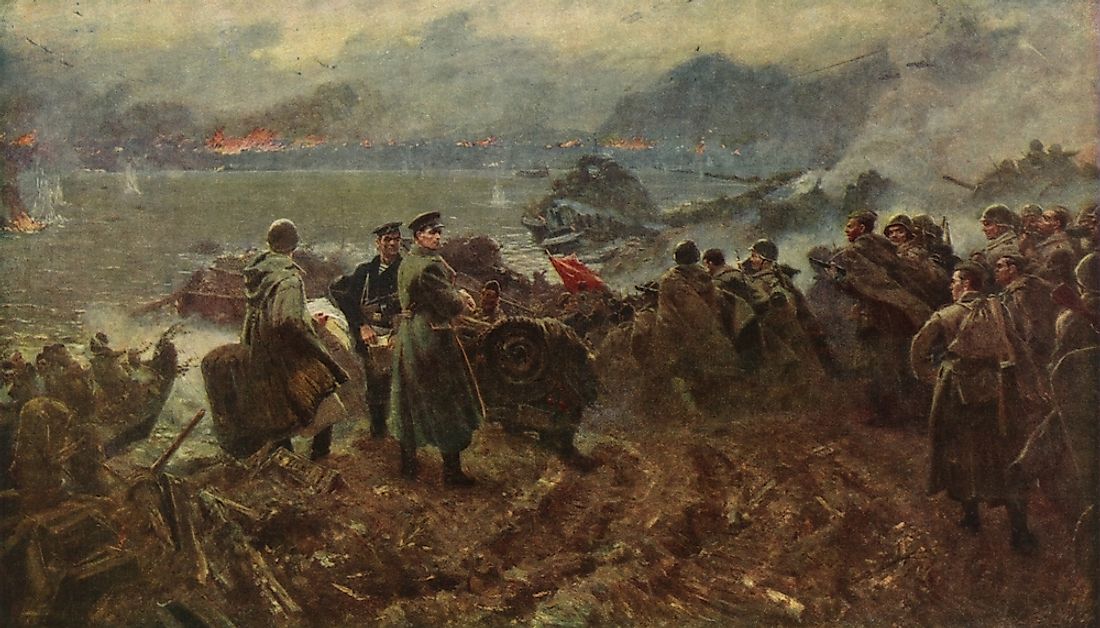What Was the Battle of Stalingrad?

Besides being one of the largest battles in World War II, the Battle of Stalingrad was also the deadliest. The Battle of Stalingrad, between Nazi Germany and its allies against the Soviet Union, began on July 17th, 1942 and came to an end in February 2nd, 1943. The casualties and losses were about 728,000 men for Germany and 1,129,619 men for Soviet Union.
Overview
The battle was essentially the Soviet’s defense of the city of Stalingrad. The Soviet armies managed to stop Germany’s invasion of the Soviet Union. Moreover, the Battle of Stalingrad was a turning point in World War II because it turned the tide of war in favor of the Allies. The Battle led to the expulsion of the Germans from the Caucasus. After intensive warfare, Germany lost and never recovered its strength during World War II.
The City of Stalingrad
Located southwest of the Soviet along River Volga, Stalingrad was a major communications and industrial center. It produced armaments and tractors. Before 1925, the city’s name was Tsaritsyn. However, it obtained the name “Stalingrad” in 1925 to honor of Josef Stalin, the leader of the Soviet Union. He placed a lot of important on the city.
Importance of Stalingrad
Capturing this city was important to the Germans for various reasons. First, by capturing it they would be able to cut transport links with southern Russia and hence, eliminate Soviet Forces in the south. Secondly, they would be able to support the larger German drive into the oil fields in Caucasus. Furthermore, gaining control of the city would enable them to secure the region’s economic and military resources. Fourthly, bringing the city under the German authority would be a great personal victory to Adolf Hitler against Josef Stalin.
Strength of the Engaging Armies
The number of Soviet soldiers that fought the Battle of Stalingrad was 1,000,000 men. They used hundreds of tankers and over 1,000 planes during the war. The leader of the German team was General Friedrich Paulus. Paulus received a promotion to Field Marshall right before their surrender. Hitler’s strategy was to use the new title to boost Paulus’ morale and encourage him to fight on. On the other hand, the Soviet Union army was led by General Georgy Zhukov. Zhukov turned out to be one of the most decorated generals in the history of the Soviet Union. He led the country to many other victories such as in the Battle of Berlin.
The Battle of Stalingrad
The war began when the German Air force bombed River Volga and the city of Stalingrad. They reduced the city to rubble and then moved in and took control of the city. The Soviet Union troops retaliated fiercely. They hid in every building, including sewers, and attacked the Germans from all over the city. Soon, the Germans were overwhelmed by the attacks. In November, the Germans were trapped and they began to run out of food. They surrendered due to freezing in the winter cold and the lack of food. General Paulus led the surrender and was captured by the Soviet. Adolf Hitler was not happy about the surrender. He expected the general to commit suicide or fight to death, rather than surrender.











